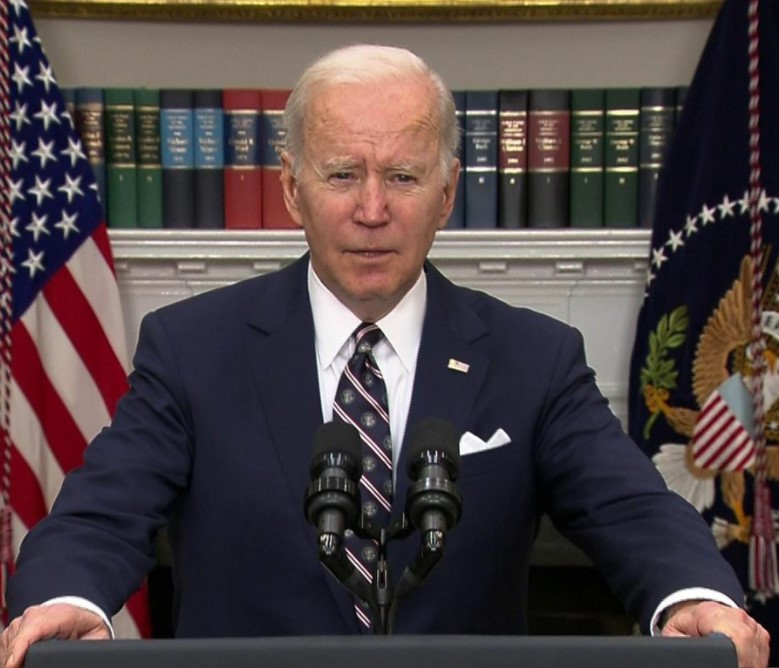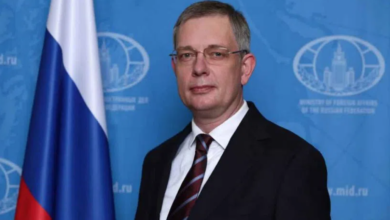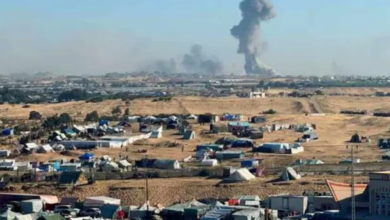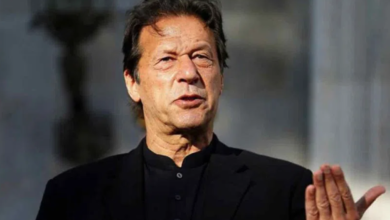Why US president Joe Biden’s upcoming Saudi Arabia trip is creating a stir

US president Joe Biden’s hasn’t stepped foot in Saudi Arabia yet but his West Asia trip is already causing a stir.
While Biden begins his tour in Israel on Wednesday, all eyes are on his trip to Jeddah in Saudi Arabia on Friday. Air Force One will make an unprecedented direct flight between the Jewish state and the conservative Gulf kingdom that does not recognise its existence.
If you like to play Age of Empires, you’ll love this game. No Install.
AdElvenar -Fantasy City Builder Game

Donald Trump had made a historic trip, in 2017, in the other direction.
Let’s take a closer look at why Biden’s trip is creating a stir:
About-turn from view as presidential candidate
As a presidential candidate, Biden said the 2018 murder and dismemberment of Jamal Khashoggi — a Saudi-born US resident known for writing critical articles about the kingdom’s rulers for The Washington Post — had made the country a “pariah.”
Biden had pledged as a candidate to recalibrate the US relationship with Saudi Arabia, after Trump’s more accommodating stand, overlooking the kingdom’s human rights record and stepping up military sales to Riyadh.
After winning the election, the Biden administration released US intelligence findings that identified the kingdom’s de facto leader Crown Prince Mohammed bin Salman, often referred to as MBS, as the mastermind of the operation.
But Biden now seems to be making the calculation that there’s more to be gained from courting the country than isolating it.
Biden defends trip
Now, Biden appears ready to re-engage with a country that has been a key strategic ally of the United States for decades, a major supplier of oil and an avid buyer of weapons.
“In Saudi Arabia, we reversed the blank-check policy we inherited” from former president Donald Trump, Biden, defending his move to visit Saudi Arabia, wrote in an op-ed published Saturday in the Washington Post.
“From the start, my aim was to reorient — but not rupture — relations,” he added.
“I know that there are many who disagree with my decision to travel to Saudi Arabia,” the 79-year-old Democrat went on, promising “fundamental freedoms are always on the agenda” when he makes foreign visits.
Biden-MBS meet
Beyond possible announcements, the White House knows the stakes of Biden’s trip are also about the optics of meeting with Saudi Arabia’s de facto ruler Crown Prince Mohammed bin Salman, who will be part of the delegation when Biden sits down with King Salman.
As per CNN, that comes after months of diplomatic overtures from the US. Officials had in May told CNN the Biden administration is in talks Saudis about arranging a potential in-person meeting while he is overseas.
“You should count on something like this happening, it just comes down to when, not if,” a former US official familiar with the discussions had said.
Marti Flacks, human rights expert at CSIS, said the White House would have put a lot of time into orchestrating “how that interaction is staged” — whether it’s public or behind closed doors, a handshake or an exchange of pleasantries.
“The X factor is, of course, the other party can always disrupt those plans if they’re determined to,” Flacks added.
Biden doesn’t want to appear as a cynic who reneges on principles for a few barrels of oil, but MBS may be tempted to turn the spotlight on his interaction with the “leader of the free world.”
To counter accusations of horse-trading, the US president is trying to give himself an above-the-fray role, as he has so far been much less concerned with the Middle East than with Russia or China.
He presents himself as a facilitator of “promising trends” in the region and as a strategist in the face of challenges, such as Iran’s nuclear program, the war in Yemen and upheavals in Syria, Libya, Iraq and Lebanon.
As per CNN, Biden officials are also wary of giving the appearance that he is backing away from his pledge to keep democratic values at the forefront of his foreign agenda. The White House is highly attuned to what would likely be bipartisan opposition on Capitol Hill to a full rapprochement with Saudi Arabia, the report noted.
Jon Alterman, senior vice president at the Center for strategic and International Studies (CSIS) in Washington, said the Biden administration “discovered what US administrations have discovered for decades: that doing a lot of things in the Middle East and around the world are much easier if the Saudis are trying to help you and much harder if they aren’t.”
Biden appears to be trying to find greater equilibrium in his Mideast policy, putting focus on what’s possible in a complicated part of the world at a time when Israel and some Arab nations are showing greater willingness to work together to isolate Iran — their common enemy — and to consider economic cooperation.
“Biden is coming in, in essence making a choice,” Natan Sachs, director of the Center for Middle East Policy at the Brookings Institution, said. “And the choice is to embrace the emerging regional architecture.”
Oil prices
In his op-ed, Biden said Saudi Arabia was “working with (his) experts to help stabilise oil markets.”
Washington wants the world’s largest exporter of crude to open the floodgates to bring down soaring gasoline prices, which threaten Democratic chances in November elections.
As a candidate, Biden promised the Saudis would “pay the price” for their human rights record. The sharp rhetoric helped Biden contrast himself with Trump, whose first official foreign trip as president was to the kingdom and who praised the Saudis as a “great ally” even after the Khashoggi killing.
Biden’s tough warning to the Saudis came at a moment when oil was trading at about $41 barrel; now, prices are closer to $105.
The elevated oil prices are hurting Americans at the gas pump and driving up prices on essential goods, while helping the Saudis’ bottom line.
White House officials have said energy talks would make up one component of the Saudi leg of the president’s visit, but they have played down the prospect of the Saudis agreeing to further increase oil production because the kingdom says it is nearly at production capacity.
However, as per Bloomberg, even a pledge from the Saudis to pump out more oil may do little to drive down the high fuel prices roiling the global economy.
“A surge in Saudi production seems unlikely,” Ben Cahill, senior fellow at the Center for Strategic and International Studies was quoted as saying. “Saudi Arabia and OPEC+ have very limited spare capacity, and they have to manage it carefully.”
As per the report, within the Organization of Petroleum Exporting Countries (OPEC), only Saudi Arabia and UAE have significant volumes of unused output – around three million barrels per day.
That’s three per cent of global oil output, and roughly equivalent to the amount of Russian oil that could be kept off the market by sanctions at year-end, according to the International Energy Agency.
However, that margin could be smaller than official figures indicate.
As per the report, French president Emmanuel Macron was caught on camera at the G-7 summit last month, telling Biden that UAE ruler Sheikh Mohammed bin Zayed had admitted to him that Abu Dhabi is at “maximum” production and the Saudis can only increase “a little more.”
While State-run giant Saudi Aramco says it can reach and sustain maximum production of 12 million barrels a day, OPEC data show the country has only held this level for a single month (April 2020) in its many decades as a major oil producer, as per the report.
“There’s a realisation that Saudi Arabia doesn’t have much to bring to the table in terms of supplies, at least for the time being,” Bill Farren-Price, a director at Enverus Intelligence Research, told Bloomberg
Strategic interests over values
“Strategic interests and the well-being of someone driving around in a Ford Expedition have always come first at the expense of brave activists in the region who want to live in more open and democratic systems,” said Steven Cook, West Asia and Africa expert at the Council on Foreign Relations, referring to gas-guzzling SUVs popular with Americans.
Saudi Arabia is also key to Washington’s efforts to contain Iran.
Bruce Riedel, who served as a senior adviser on the National Security Council for four presidents, said the Saudi Arabia visit is “completely unnecessary” under the circumstances.
“There’s nothing that Joe Biden is going to do in Jeddah that the secretary of state or the secretary of defense, or frankly, a really good ambassador couldn’t do on his own.,” Riedel said. “There’s no outcome that’s going to come from this that really warrants a presidential visit.”
‘Deepen, expand’ Israel and Arab states’ ties
Biden aims in particular to “deepen and expand” the process of normalising relations between Israel and Arab states, initiated under Trump.
Aside from the symbolic Air Force One flight, analysts anticipate announcements on Saudi-Israeli relations.
The Jewish State is keen to receive Biden with great pomp, even in the midst of political turmoil as Israel prepares to hold its fifth election in less than four years in November.
Biden is due to meet Prime Minister Yair Lapid, but his advisers insist he also meet Palestinian president Mahmud Abbas, as Trump had more or less ignored the Palestinians during his term.
The recent death of another journalist will also cast a shadow over the visit: that of the American-Palestinian Al Jazeera reporter Shireen Abu Akleh, killed in May in an Israeli raid.
Her family has asked to meet Biden. The White House has so far declined to comment on this request.
With inputs from agencies







